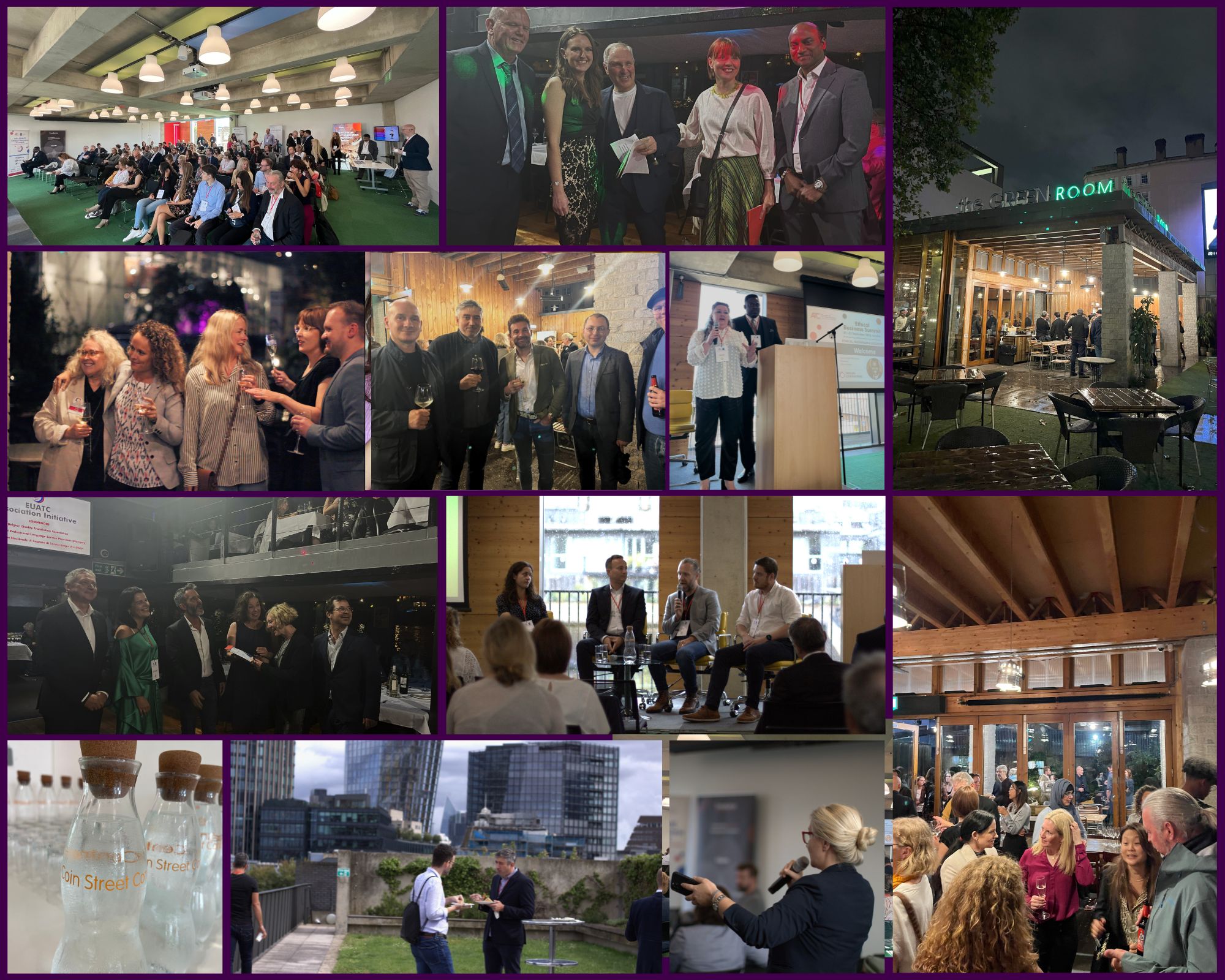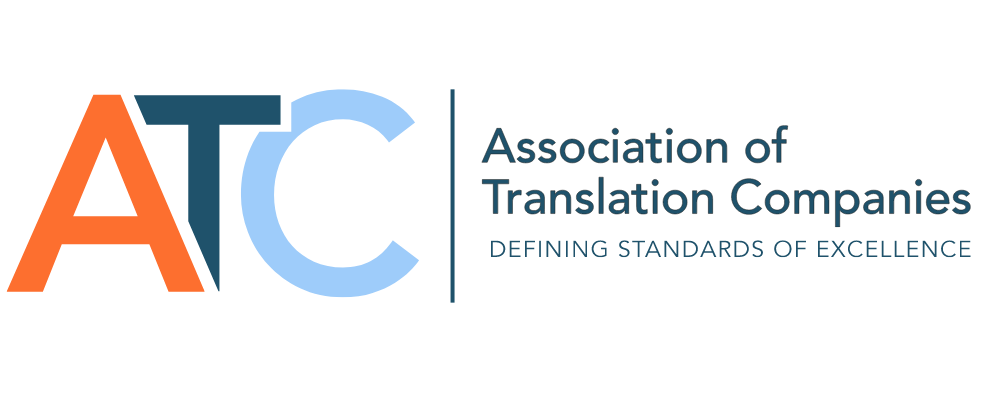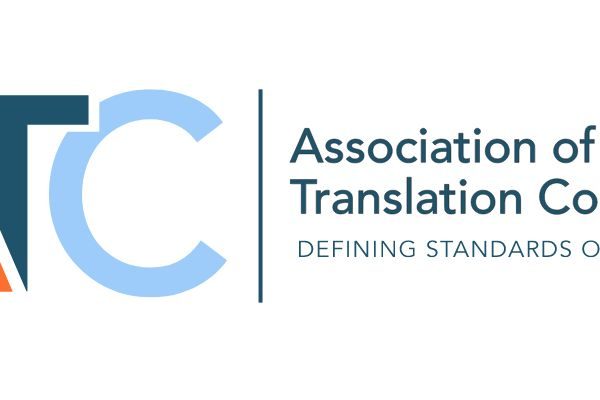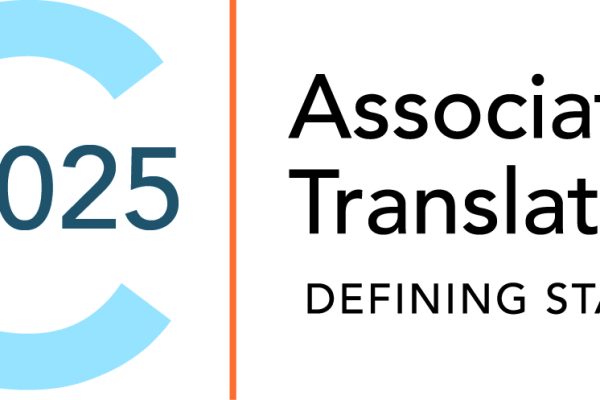The autumn is packed full with engaging, insightful events by the ATC and our global…

Report from the ATC-EUATC Ethical Business Summit 21-22 September 2023, London
Raisa McNab, CEO, Association of Translation Companies
The Ethical Business Summit asked the question ‘What exactly is ethical, sustainable business in the language services industry?’ A collaboration between the UK’s Association of Translation Companies, and the EUATC, Europe’s umbrella association of national associations of translation companies, the Summit brought together industry leaders, language service companies, buyers, and technology companies for two days of inspiring and inspired discussion.
Progress, not perfection, and the quadruple bottom line
The founders of The Good Small Business Saloon and Awards, Claire and Garth Dallas from Dallas Consulting defined a sustainable society as one that is environmentally restorative, socially just and economically inclusive – one where sustainable business is about small steps towards progress rather than a quest for perfection.
They challenged businesses to rethink the concept of ‘value creation’: instead of focusing on traditional notions of shareholder value or shared value, turning to the concept of ‘system value’ where business addresses societal challenges in a holistic way, while not hindering progress toward a future-fit society.
Building on the traditional ‘triple bottom line’ of economic, social and environmental impacts, Claire and Garth Dallas introduced the key concept of purpose, introducing the ‘quadruple bottom line’ to underpin sustainable businesses of the future: People and the social aspect, Planet and the environmental aspect, Purpose and the governance aspect, and Profit and the economic aspect.
B Corp journeys and implementing best practices
Taking the principles of people, planet, profit and purpose, a practical angle on language service companies’ sustainability journeys came from B Corp Certified Comtec Translations’ James Brown and AJT’s Anja Jones who also hosted a workshop on implementing sustainable business practices together with the ATC’s Vice-Chair Corinne Saynor Smith.
Ethical, sustainable business practices promoted by the trio focused on a purpose-driven, rounded approach – building positive relationships and promoting ethical behaviour with staff, suppliers and clients, championing linguists as partners, understanding environmental impacts relevant to our business, and using technology as a force for good, taking care of people and the planet while still making a profit.
Buyer perspective: transparency, collaboration, and social responsibility
The Ethical Business Buyer Panel brought together commercial and institutional buyers from across Europe: Jamie Brown from what3words, Carmen Sanchez Navarro from Expedia and Women in Localization UK Chapter, John Devery from the UK’s Crown Commercial Services, and Chris Piekoszewski from the World Intellectual Property Organisation.
The panellists highlighted the growing drive towards ethical, sustainable business practices in their procurement and supply chain models, homing in on transparency, collaboration, and corporate social responsibility, while outlining the formal and structural constraints around public sector procurement, especially.
Above all, the panel encouraged language service companies to identify and showcase the ethical, sustainable best practices they are already doing without always even recognising them as such.
This was also the message from Christl Schraut, retired industry veteran from the European Investment Bank and International Criminal Court, who took a personal look back, sidewards and forward around the concepts of ethical provision of language services on a global stage.
The state of the UK language services industry
The Summit offered a sneak preview of the 2023 UK Language Industry Survey & Report with Gabriel Karandyšovský from Nimdzi Insights, complemented by an industry Panel with Heike Leinhäuser, EUATC President & Leinhäuser Language Services, Ruth Partington, ATC Chair & Empower Translate, and Steve Higgins, ATC Council Member & Mondia Technologies sharing their insights on the state of the market.
In 2022, the UK recorded strong overall growth at 12.5%, outpacing the global average with language service companies expanding their portfolios, and with the domestic UK market remaining the largest source of work. While everyone is started talking about AI, machine translation became a key lever for business growth with close to one-third of UK LSCs using MT for over 50% of their projects.
In 2023, LSCs are feeling the impact of external forces, and on the client side budgets are flat and big projects are on pause until the AI-or-not debate shakes out under the sign of ‘wait and see’. According to Karandyšovský, in the decade of reinvention, savvy businesses need to remain agile and continue to reinvent themselves in times of external pressure, balancing sustainability and growth for all participants on the market. In this, AI is a source of opportunity, and there are many paths to ensuring growth.
The 2023 UK Language Industry Survey & Report is published on 2 October by the Association of Translation Companies and Nimdzi Insights.
Workshops on language professions, scams and the role of tech
Practising translator and President of FIT Europe John O’Shea hosted a workshop with DGT Policy Officer Inkaliisa Vihonen, working with delegates to help shape a Europe-wide campaign to promote careers in languages and to brainstorm with the leading minds of the industry on how to build a sustainable future for language professions.
Breakout workshops with Summit sponsors RWS Trados and LBS Suite focused on the topics of AI and the hidden cost in sustainability, and how vendor management technology can help make your business more ethical, while Word Connection tackled a perennial ethical industry challenge on how to identify and keep clear of translation scams and protect both your business and your suppliers.
2023 Language Industry Awards
Summit delegates embarked on a Thames river boat to celebrate the operational excellence of language service companies of all sizes, and the industry professionals who support them, showcasing ATC and EUATC member companies and their teams’ dedication to quality, commitment, innovation and resilience. In London, the awards also recognised and celebrated the associations of language service companies, and the association volunteers who make a difference.
Find more about the awards winners .
Ethical AI for language services from an EU perspective
The Summit’s inspirational keynote was delivered by Christos Ellinides, acting Director-General of the European Commission’s Directorate-General for Translation on ethical, sustainable AI for language services from EU perspective.
Ellinides raised the ethical use of AI as one of the most pressing issues in industry and government today, with the DGT among the leading services for the European Commission’s work on AI. The below summarises Ellinides’ key points, and the whole speech can be read below.
Generative AI is a radical departure from past AI-enabled solutions such as predictive AI technology used in the language services industry for years. Because of this, it is important to take a step back from the on-going hype and recognise that we are just at the beginning of a journey towards a destination that is not yet known to us.
As such, Ellinides says, we need to ask ourselves what and how much decision-making power should we give AI tools. When and for what type of content? Which documents should we be using AI to translate or analyse? Why? With what checks? And at what risk?
The answers are still a matter of subjective opinion, judgement and sustained ongoing ethical reflection, because we are only at the very beginning of the new AI era – but the time to deal with these ethical questions is now.
The EU is leading the way globally, with the Commission’s strategy on ‘Artificial Intelligence for Europe’ adopted in 2018. The strategy recognised that AI is already part of our lives and not science fiction, and that it can make our lives easier and transform our society as well as our economy. But it also emphasised that AI brings new challenges for the future of work, and raises complex legal and ethical questions that need to be addressed.
The draft legislation from the EU AI package confirms how ethical issues remain central to the EU approach on AI, due to be adopted by the Council and the Parliament by the end of 2023.
- The proposal for an Artificial Intelligence Act focuses on ‘trustworthy AI’ and lays down a risk methodology to define the nature of obligations linked to developing, importing, and using AI in the EU. It sets out rules that govern the safe and ethical use of AI. It is the first in the world to adopt a risk-based approach to AI, which means it sets different rules for different risk levels.
- A proposal that complements the AI Act is the Commission’s proposal for an AI Liability Directive, which aims to adapt private law to the needs of the digital economy, intended to protect people and companies by making it easier to claim damages for harm caused by AI. It will apply to providers, operators and users of AI systems and broadly captures providers and users that are available or operate within the EU.
- A new Defective Products Liability Directive will update the EU product liability framework to better reflect the digital economy and will explicitly include AI products within its scope.
Ellinides also outlined the set up for a high-level expert group on artificial intelligence, which has produced Ethics guidelines for trustworthy AI. These guidelines state that trustworthy AI should be lawful, ethical, and robust. Together with other services, the DGT is leading the Commission’s work to guide, explore, facilitate, and control the AI developments in a way that both respects and fosters our ethical standards and fundamental values.
As a dynamic and rapidly evolving field, AI demands imagination and caution in equal measure, Ellinides continued, and set out three key ethical principles when using AI in translation, based on the general EU approach:
- to put people first (a human-centric approach);
- to be trustworthy and transparent; and
- to ensure data security and data privacy.
For the DGT, the first key ethical principle is to be human-centric and put people first. One thing this means is the essential need to continue investing in the training and guiding staff, not only so they can make the most out of AI, but also so they can use it wisely, critically assess the output and maintain a healthy awareness of potential pitfalls.
The DGT also wants to share secure resources and guidance with sub-contractors, incorporate ethics into translator-training programmes, and ensure that the AI tools provided to staff actually help to relieve them of many routine and repetitive tasks giving them more time to focus on tasks where human expertise can bring the biggest value.
The second key ethical principle is to build trustworthy and transparent AI.
In practice this means working to maintain the trust of citizens:
- By exercising care and acute judgement – knowing when to use the new technology and when not to;
- By putting in place supervision, feedback, and correction processes; and
- By gaining experience – not just talking about it but learning by doing.
The last of the three key ethical principles when using AI in translation is: ensuring data security and data privacy, and this principle runs through all of the EU’s AI work.
In summary, Ellinides reminded us that AI brings with it great power, potential and shared responsibility. Developments in AI technology are constant, on-going, and fast. We cannot treat AI as our traditional IT tools and systems because AI is not traditional IT. We need to manage, explore, and exploit this innovative technology because it opens a great potential and vivid opportunities for many industries, including our own industry, and the economy as a whole. We need to join forces and work together to make the most of these opportunities; share experiences and identify potential through events like this one.
We must never lose sight that our AI-powered services and products need to be controlled by a moral compass and ethical principles.
21-09-2023 Ethical Business Summit - Ellinides keynote speech


